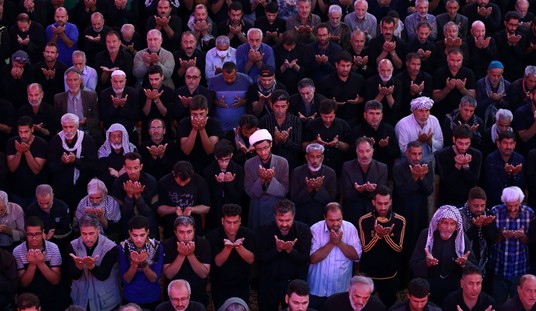By RONALD RADOSH AND SOL STERN
Michael Walzer, the distinguished political philosopher who writes on topics as varied as the theory of just war and Judaism, is now one of the leading lights of a group of academics called The Third Narrative, which recently issued a statement calling for “personal sanctions” against right-wing Israeli political figures whose views are allegedly so beyond the pale of acceptable discourse about the Palestinian-Israeli conflict that they should be turned into non persons.
For starters, Walzer and his fellow “liberal Zionists” are demanding that the United States and the EU impose visa restrictions and freeze bank accounts for such dangerous Israeli politicians as Economy Minister Naftali Bennett, Housing Minister Uri Ariel, Likud MK Moshe Feiglin and Ze’ev Hever, head of a group called Amana, which oversees Israeli settlements. These four right-wing activists were chosen, a scholar told The Forward, “because they stand out by working to make the occupation permanent and irreversible.”
The group’s members include sociology and journalism professor Todd Gitlin, historian Michael Kazin, sociologist Alan Wolfe and other self-proclaimed center-left academics, some of whom are social-democrats affiliated with the journal Dissent. Most of them are proud members of the “democratic Left.” They also proclaim themselves liberal Zionists who oppose academic boycotts such as those advocated by the BDS movement.
Some years ago, Michael Walzer wrote a penetrating essay titled “Can There Be a Decent Left?” But by signing on to these destructive and hypocritical demands, Walzer himself has provided strong evidence that the left (including even the social-democratic left) has become indecent about Israel. Having taken on those he called the “Blame America First” leftists, Walzer has himself joined the “Blame Israel First” crowd. His group says it distinguishes itself from the BDS extremists who hate Israel. Rather than ostracize all Israeli academics, they stress that they are only targeting individuals whom they see as most responsible for the “occupation.” As they say in their Dec.8th statement, these individuals pursue “unjust, unlawful, and destructive policies in their most extreme and dangerous form.”
Walzer and his colleagues believe that these perfidious individuals do not have the same rights of free speech as the “good Israelis” who favor a two-state solution and the creation of a Palestinian state. Bennett should be virtually criminalized because he favors “creeping annexation, Ariel for advocating a one-state solution, and Feiglin for his “undisguised extremism” and for his advocacy of annexationist policies, such as building homes in outposts considered illegal by the Israeli government.
The new liberal Jewish censors have an entirely different standard for Palestinian leaders. They know that Mahmoud Abbas’ government on the West Bank has demonstrated again and again that it will not acknowledge Israel’s permanent right to exist as a Jewish state, has done nothing to stop the rampant anti-Semitism throughout the school system and the PA itself, and that Abbas has never agreed to give up the “right to return,” which if implemented means the end of the Jewish state.
Since Abbas and his comrades support extreme positions that prevent a peaceful solution of the conflict, Walzer and company should logically be in favor of personal sanctions against these anti-peace extremists in the Palestinian Authority. Unfortunately the liberal, pro-peace Zionists have never protested the destructive, anti-Jewish statements emanating regularly from PA headquarters in Ramallah. Like the BDS movement whom they claim to oppose, their proposals are aimed only at Israeli political leaders they disagree with.
Consider, for example, the logic Todd Gitlin uses in urging academics to follow their lead rather than the BDS movement. Writing in Tablet Magazine and published on The Third Narrative’s website, Gitlin inadvertently reveals that his disagreements with BDS are essentially only tactical. He calls BDS advocates guilty of issuing “apolitical tantrums in cases of right versus right.” But a close reading shows Gitlin guilty himself of very similar tantrums.
He favors “reform boycotts,” such as the “divestment” movement against South Africa in the era of apartheid. He argues that this was a practical objective, in which one side was clearly wrong, while the issue in Israel is a “clash of right against right.” Nevertheless, Gitlin calls the BDS movement’s members “people of good will” who only want to “push Israel to make concessions to the Palestinians.” Really? In 2008, then Israeli Prime Minister Ehud Olmert offered Mahmoud Abbas a Palestinian state with the equivalent of 98% of the territory on the West Bank and Gaza and offered to divide Jerusalem so that the Palestinians could establish their capital in the Holy City. Did Gitlin or Walzer ever call Abbas an extremist for rejecting peace and a two-state solution at the time?
Instead Gitlin offers this virtual endorsement of BDS’ position on the recent Gaza war:
Their passion to press the state of Israel to abandon the occupation of the West Bank, to encourage de facto the emergence of a Palestinian state that would live side-by-side with a majority-Jewish state, I devoutly share. The death toll and destruction caused by Israeli attacks on Gaza this summer only strengthen the case that Israel’s defense needs do not justify wholesale destruction and everyday victimization, even in the face of terror and aggression.
Gitlin believes that Israel’s response to neverending rocket attacks by Hamas was not justified, and accepts without question the BDS narrative that Israel did not try to avoid civilian casualties. He utters not a word about the Hamas fascist movement and totalitarian government that has the support of over 60% of Palestinians and that placed rocket launchers purposefully in civilian areas, including hospitals and schools, knowing that Israel would try to avoid hitting these.
Instead Gitlin and Walzer turn all their political passions exclusively against an Israeli political faction that is a small minority and that at least competes fairly in Israel’s democratic process. Another member of The Third Network, Cary Nelson, editor of a book opposing academic boycotts of Israel, favors condemning the views of Israeli leaders he thinks are extreme, but he makes the basic point that somehow eludes Walzer and Gitlin: “I cannot support sanctioning them for exercising their free speech rights.”
The claim of Gitlin and Walzer that since they are not for a blanket boycott their version is more legitimate and ethical is fallacious. What if a far-right government in this country proposed a ban on those leftist political leaders in Israel whom Walzer and Gitlin like? What if a right-wing European government issued sanctions against Walzer and Gitlin and stopped them from speaking in Europe? Gitlin thinks the views of Bennet and the others are “a proper target” because “their activity is toxic.” He doesn’t seem to comprehend that these “toxic” leaders have gained support because ordinary voters in Israel are fed up with the Palestinian leadership’s long and continuing refusal to accept any kind of a just peace and two-state solution. Israeli politics have become “toxic” primarily because of the failure of Israel’s peace camp to succeed in ending Palestinian rejectionism, despite scores of compromises they have offered to the Palestinians.
Instead of issuing faux travel bans against Israelis, The Third Narrative group would do much better for Middle East peace if they put some pressure on Mahmoud Abbas to give up the Palestinian right of return. They have not one word about the necessity for such an action, not to speak of urging sanctions against any Arab opponents of Israel, including Hamas. Their position is asymmetric, felt only in Israel but not in Gaza or the West Bank. It is similar to the positions of the “peace movements” of the 1980s in Western Europe that opposed the Euromissiles placed in Germany against the Soviets by Jimmy Carter, but said not one word about Soviet armaments and missile deployment aimed at the West.
Walzer and Gitlin’s arguments for a limited, personal boycott achieves nothing for peace, but it does cross the slippery slope in which any side can seek to limit the legitimate political activity of certain hated individuals. The position they take harks back to the popular position espoused by Herbert Marcuse in the 1960s- “repressive tolerance.” Marcuse believed that to attain freedom, one had to suppress the opinions of those on the Right. Rather than debate with an opponent, as Martin Indyk recently did with Naftali Bennet at the Brookings Institution, they prefer to repress it, via attempting to silence those they oppose by sanctions. It does not occur to them that trying to suppress free speech in another democracy — one that is a key ally of the U.S. in the Middle East — makes them akin to the caricature always used by the Left, that Americans are imperialists seeking to tell other nations how to run their affairs.
It is beyond hypocrisy to see their call for sanctions adopted by academics and intellectuals who bathe themselves in the halo of humanism, liberal Zionism, and social democracy.
As George Orwell famously noted, “There are some ideas so absurd that only an intellectual could believe them.”









Join the conversation as a VIP Member